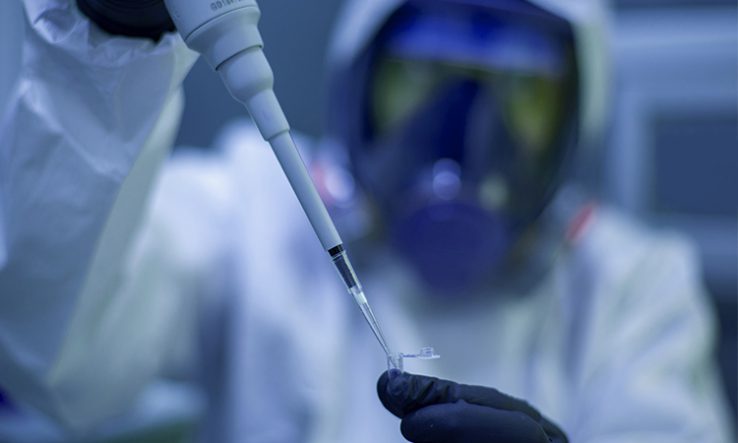
Crying foul against experts and journals serves mainly to chill debate, says Fiona Fox
I once attended a panel discussion where Phil Campbell, then editor of Nature, was a speaker. Challenged from the floor about scientific groupthink on climate change, Campbell said he would love to publish a paper that overturned everything we know about climate science. The best journal editors, he said, have a contrary streak.
In the bar afterwards, I told him I didn’t entirely believe him. Surely no editor wants to undermine public trust in science and hand the sceptics a PR coup. He countered that a journal editor’s job is to publish the best science, not shape public debate.
“But,” he concluded, “the science better be bloody good.”
I have reflected on that conversation this week as a growing number of commentators and journalists have accused journals and scientists of closing ranks against those who think the Sars-Cov-2 virus could have leaked from a Chinese laboratory.
Hot takes
Richard Dearlove, former head of MI6, has led the charge, telling the Telegraph’s Planet Normal podcast that the scientific community had “shut down any debate”, and that “some scientific journals absolutely refused to publish anything that disagreed with the Chinese view”.
Writing in the Daily Mail, journalist Dominic Lawson lambasted the Lancet for its February 2020 publication of a letter by 27 scientists dismissing the lab leak claim. UnHerd has published pieces by the academic Matthew Crawford, titled “Science has become a cartel”, and journalist Ian Birrell, titled “Beijing’s useful idiots”.
“Only now,” wrote Birrell, “is acceptance emerging that the science establishment colluded to dismiss the lab leak hypothesis as a conspiracy theory, assisted by prominent experts with clear conflicts of interest, patsy politicians and a pathetic media.”
The flurry of media coverage is slightly odd when nothing has really changed in our scientific understanding, and it’s notable that few of the articles are by science correspondents.
The coverage is further confused by articles conflating very different things. An accidental leak of a natural wildlife virus is plausible—it has happened in the UK, with an outbreak of foot and mouth disease originating in a leak from research facilities at a site in Pirbright, Surrey.
Such a leak would raise questions about biosecurity in China, but otherwise would make little difference to our understanding of the virus and would be undetectable from viral biology. But much of the commentary is conflating this relatively innocuous possibility with more sinister claims about a bioengineered virus or gain-of-function research.
Plenty of good scientists believe research into the origins of the virus is important, but those like Dearlove, who are suggesting something more sinister, have yet to produce any experimental evidence.
Self-defeating certainty
I am more sympathetic with the charge that some scientists may have been overzealous in dismissing the lab leak theory because it was heavily promoted by Donald Trump and his supporters, in a bid to pin blame on China for the US’s dismal handling of the crisis.
The temptation to say and do the opposite to Trump is understandable, but the current row shows why science must resist this kind of politicisation. Public trust relies on believing that scientists can rise above politics and work from observation, to hypothesis, to experiment.
When climate sceptics were at their most aggressive in the early noughties, I often got into arguments with press officers and scientists who feared that acknowledging uncertainties or inaccuracies would be used to seed doubt. Ultimately, this was self-defeating. Instead, sceptics exploited attempts to downplay uncertainty.
Nor am I a big fan of joint statements from scientists about anything as preliminary and uncertain as the origin of Sars-Cov-2. The pandemic has already seen a glut of such statements from all sides on issues such as face masks, herd immunity and airborne transmission. What we need on all these subjects is more and stronger evidence, subjected to rigorous scientific debate.
Many of those raising the lab leak issue claim they have been shut down by the scientific establishment. But throwing around accusations of censorship and cartels is hardly the best way to generate the debate they say they want. The issue is already so politicised (and toxic) that the Science Media Centre has struggled to persuade some mainstream experts to enter the fray.
The bloody good paper overturning what we know about the origins of Sars-Cov-2 has not arrived yet. If it does, I am confident it will be published in a good journal.
Until the question is resolved scientifically, the best thing we can do is continue to support good research and encourage open and robust debate. It’s precisely when an issue in the news becomes messy and toxic that we need to hear from the best scientists.
Fiona Fox is chief executive of the Science Media Centre
UPDATED 25/6—This story has been updated to clarify the site of the FMD outbreak mentioned.
This article also appeared in research Fortnight